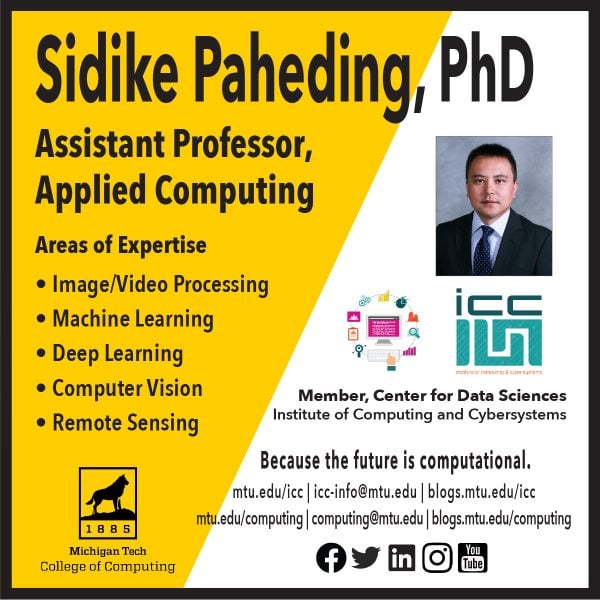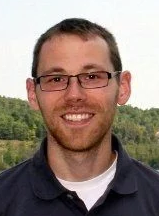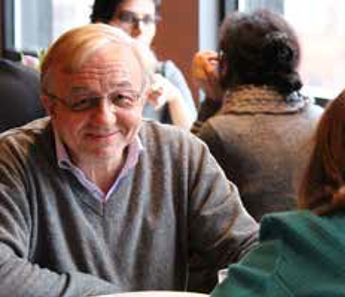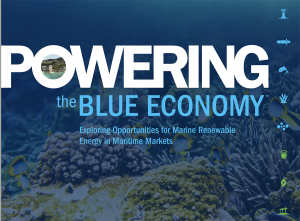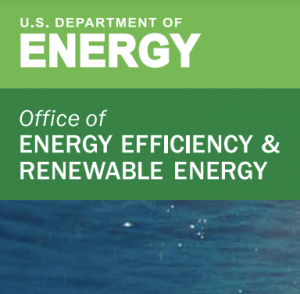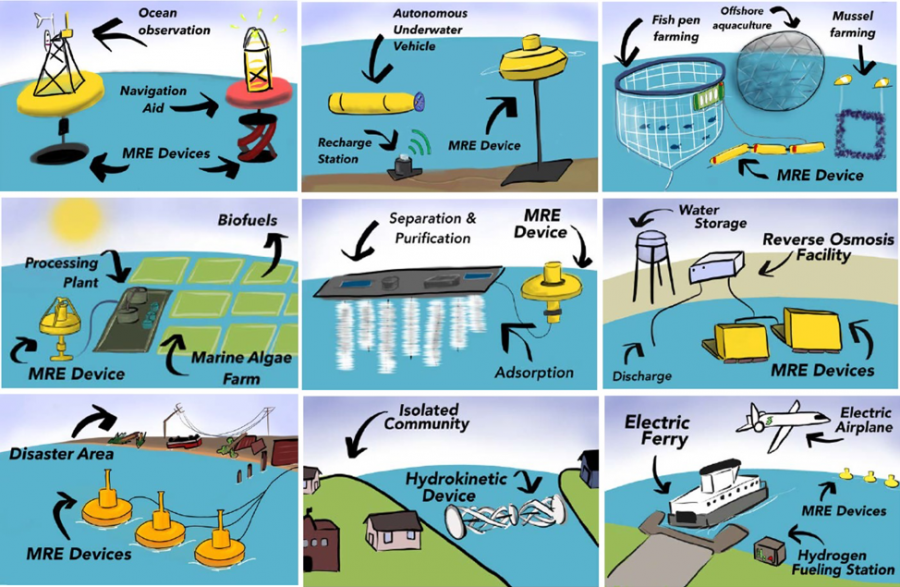By Kimberly Geiger, College of Engineering, June 8, 2021
Michigan Technological University has joined the Power Systems Engineering Research Center (PSERC) — a collaboration of university and industry members.
“We are very pleased to be members of PSERC, where our researchers can combine efforts with other members to creatively address key challenges in creating a modern electric energy infrastructure,” stated Janet Callahan, dean of Michigan Tech’s College of Engineering. “Michigan Tech will be the 13th university in the partnership, and will bring three new industry partners into PSERC,” she added.
Those partners are DTE, Consumers Energy and Hubbell. The full list of member universities is available on the PSERC website.
“The overall goal of joining PSERC is to catalyze transdisciplinary research by teaming up with other institutions and relevant industry partners for national grant competition,” said Chee-Wooi Ten, associate professor of electrical and computer engineering at Michigan Tech. Ten will serve as Michigan Tech’s PSERC site director.
Started as a National Science Foundation (NSF) Industry-University Cooperative Research Center (IUCRC), PSERC began in 1996 and was first led by Cornell professor Robert J. Thomas, and then Vijay Vittal of Arizona State University. Today PSERC is directed by Kory W. Hedman, professor of electrical and computer engineering at Arizona State University.

PSERC member expertise includes power systems, applied mathematics, complex systems, computing, control theory, power electronics, operations research, nonlinear systems, economics, industrial organization and public policy.
Michigan Tech brings much to the research collaborative, said Callahan, particularly in key areas of power systems engineering, social sciences and, most importantly, computing involved heavily in data science and cybersecurity. Cross-disciplinary interaction will be encouraged and expected, for example, with the University’s Department of Applied Computing where Ten holds an affiliated faculty position and where Hubbell is a member of the departmental industrial advisory board.
Membership in PSERC will enable Michigan Tech to apply for seed grants together with other PSERC universities. Ten envisions Michigan Tech faculty members submitting seed grant proposals annually. “PSERC membership will enable Michigan Tech to go beyond its traditional research boundaries,” he said. “Historically, power area research at Michigan Tech focuses on the metering of electrical loads met by generation. We’ll see more opportunities that involve the intersection of new cross-disciplinary areas.”
PSERC grants can also fund graduate student research, noted Callahan. “Any faculty member at Michigan Tech can submit proposals, but this is especially good news for assistant professors and other new faculty members seeking to establish a research program,” she said. “This aligns with our institutional Tech Forward initiatives and University vision to grow to 10,000 students, especially our graduate student population.”
Members of PSERC typically meet in person three times per year with the PSERC Industrial Advisory Board (IAB). This meeting provides a regular opportunity to build new and productive partnerships among faculty and students from other PSERC universities as well as with industrial partners.
“These meetings are unparalleled, a regular opportunity to meet and mingle with energy researchers from other PSERC institutions. We’ll be able to brainstorm and discuss possible collaborations,” said Ten. “I am also very pleased to work with Kory Hedman, the new director of PSERC.”
“While we are now part of the PSERC ecosystem that allows us to submit proposals, the work has only just begun,” Ten concluded. “I am looking forward to working with our PSERC members and creating value with Michigan Tech’s research strengths.”
View the original article here.
Michigan Technological University is a public research university, home to more than 7,000 students from 54 countries. Founded in 1885, the University offers more than 120 undergraduate and graduate degree programs in science and technology, engineering, forestry, business and economics, health professions, humanities, mathematics, and social sciences. Our campus in Michigan’s Upper Peninsula overlooks the Keweenaw Waterway and is just a few miles from Lake Superior.
